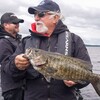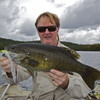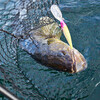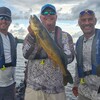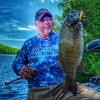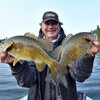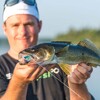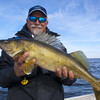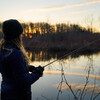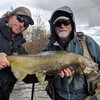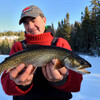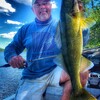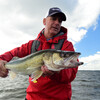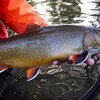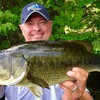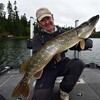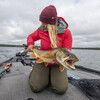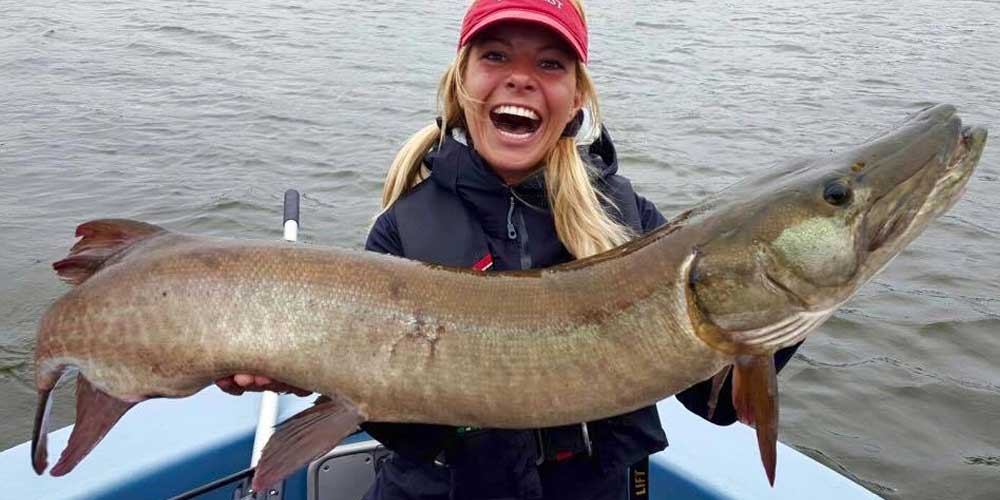Muskie Hits and Misses
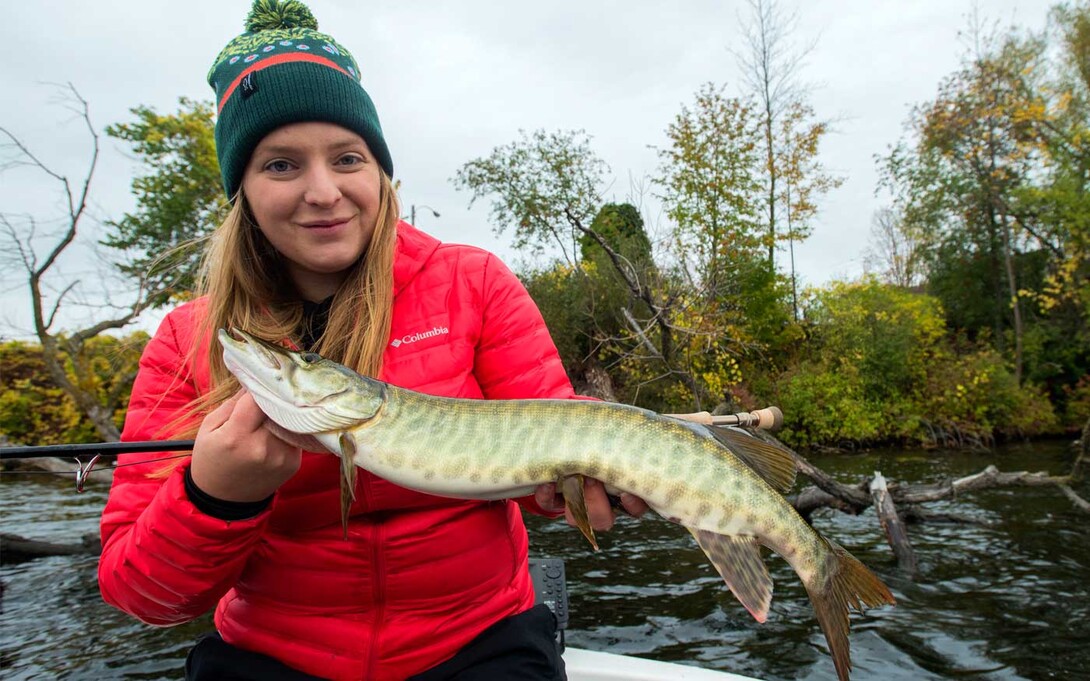
Three years ago I had the bright idea of pursuing, at all costs, a muskie on the fly.
Keep in mind that, at the time, I hadn’t even begun fly fishing when the decision was made to pick up an 11-weight rod and toss gargantuan muskie flies over my head. 100% green as a fly angler, I threw myself into a brand-new world of fishing.
There are a few things one should know before pursuing muskie on the fly. First thing, it is downright dumb to begin learning to fly fish with muskie and pike flies. That may be more obvious to most than it was to me.
With swollen hands, thrown shoulders, and raw stripping creases on my palms, I delved into fly fishing.
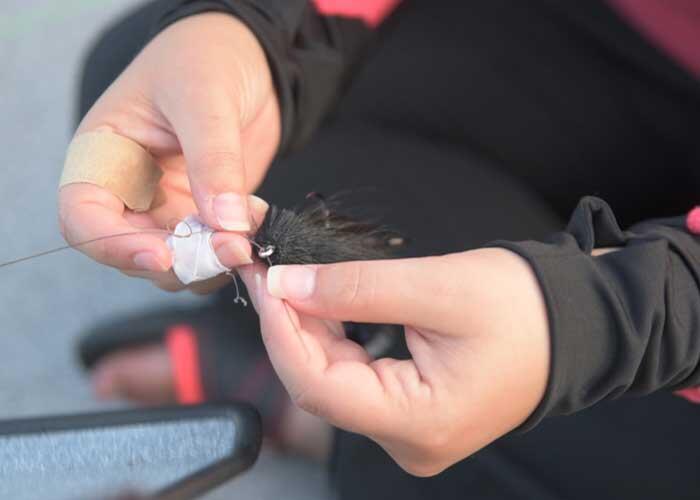
Obsessed with landing a giant, I travelled across two provinces, three different time zones, and thousands of miles to another coast just to try to land my first muskie on the fly. What is it about anglers that makes us think the best fish are further away? Heck, all of my personal bests have come from the same bays I launch the boat in.
By the way, this was the second thing you should know—don’t assume the fish care at all how many miles you’ve put in to target them.
Thirdly, muskie are a challenging fish—to say the least—on gear, let alone fly. It is true what they say about fly fishing for them: it does give you a disadvantage. This is even truer if you’re an inexperienced fly angler such as myself.
Fourth thing, that disadvantage makes it SO worth the effort and heartache once you finally do get one to the net. And I can officially say, I know this to be true.
Fast forward three years from the time I made the utterly ridiculous decision to start to fly fishing just for the sake of my esox addiction—I’m in the Kawartha Lakes region, a short distance from my home base in central Ontario, with, surprise, surprise, my good friend, Aaron Jolicoeur.
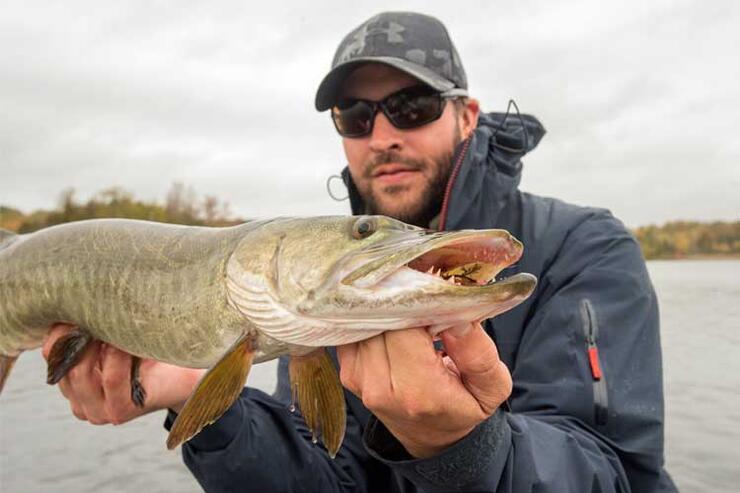
We’re fishing a low-pressure lake with lots of fish, a lake Aaron has predicted many times would be the body of water where I land my first muskie.
Aaron fished gear for the better part of the day, but it wasn’t producing much either, so I decided to tough it out with my heavy fly to see if I could get at least a follow.
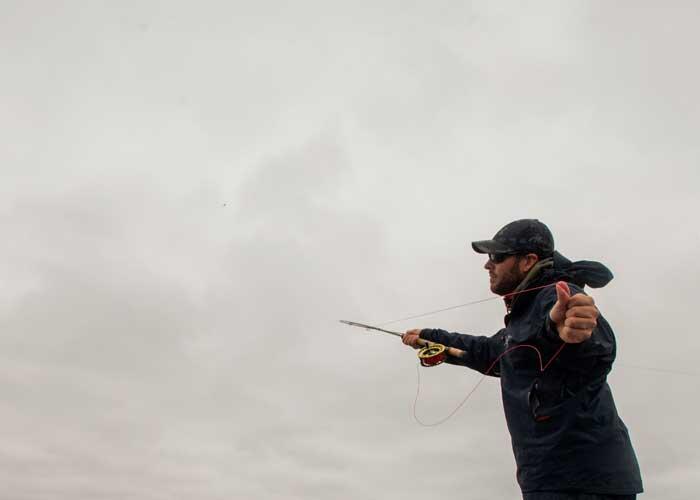
Lo and behold, I got a hit way out from the boat, and I could tell this fish was big. It headed straight for the boat about 15 feet, then dove straight down into the weeds. This fish instinctively dove to the thick weed coverage, knowing full well whatever had a hold of it couldn’t follow it through there.
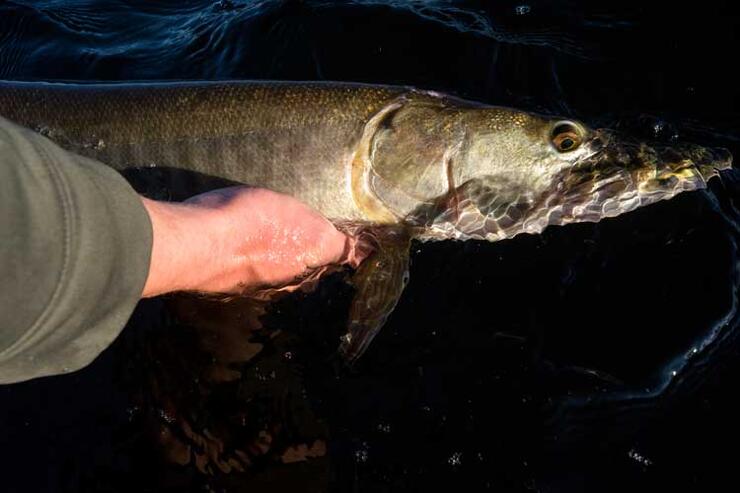
Not even thirty seconds later, my line goes slack. It’s gone. This is turning into Lac Seul all over again. Another fish flossed by my own hand. At this point, I believe I’m expected to just lose fish because I’m pretty good at that.
“If I lose another fish today, throw me overboard,” was the statement I made to Aaron that morning. Certainly, glad it wasn’t followed through, but I would’ve deserved it.
Each fish lost became easier to just move on from and keep fishing. Not even a swear word was mumbled. Well, maybe one.
We clip along at a charitable pace, feeling more like we are tournament fishing, my false casts become fewer, and I’m impressed at my own efficiency. Before too long, I had another snap at the fly, this time I went all out with a wild hook set, securing the furious hostile on the other end. Running parallel with the boat and then back towards the shore, I hand-strip it in realizing it’s much, much smaller than my last fish on.
Ask me if I cared. No matter how small this fish was, it was making it to the boat.
With just as much excitement as I, Aaron practically threw his rod down to leap for the net. A few exciting death rolls and jumps at the boat later, he was netted.
Three years of relief washed over me as I beamed at this tiny, tiny micro muskie with pure, unfiltered joy. Had it been 40 inches, I may have even shed a tear.
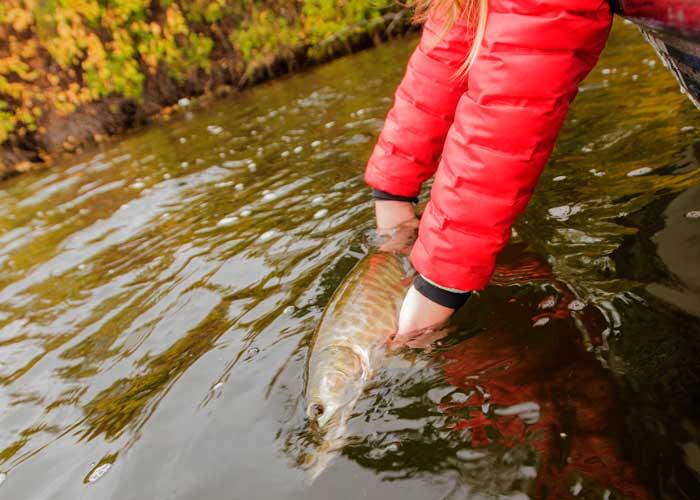
Finally, my stars had aligned, and my dumb idea three years ago came together. Now to aim for the 50-inch club.
Recommended Articles
Catch, photo, release
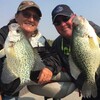
Pine Sunset Lodge
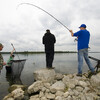
Ontario Carp Championship
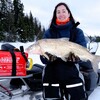
Best WhiteFish Tactics

World Class Walleye Fishing at Vermilion Bay Lodge
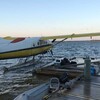
Birch Bark Lodge
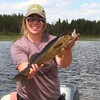
Ghost River Lodges

The Lake of Many Bays
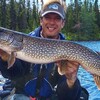
Trophy Pike & Ribs
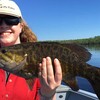
Big Smallmouth Bass
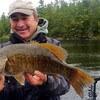
Go Junk Fishing
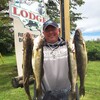
Walleye Fishing at Waterfalls Lodge
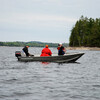
Lady Evelyn Lake
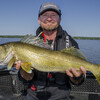
Walleye on Lake Temiskaming
Indian Lake Lodge
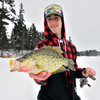
Easy Pickin's for Northern Ontario Panfish
Big Water, Big Fish
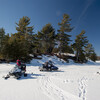
Sun Trout and Ice
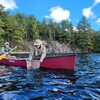
Fishing the Exceptional Waters at Blue Fox Camp
